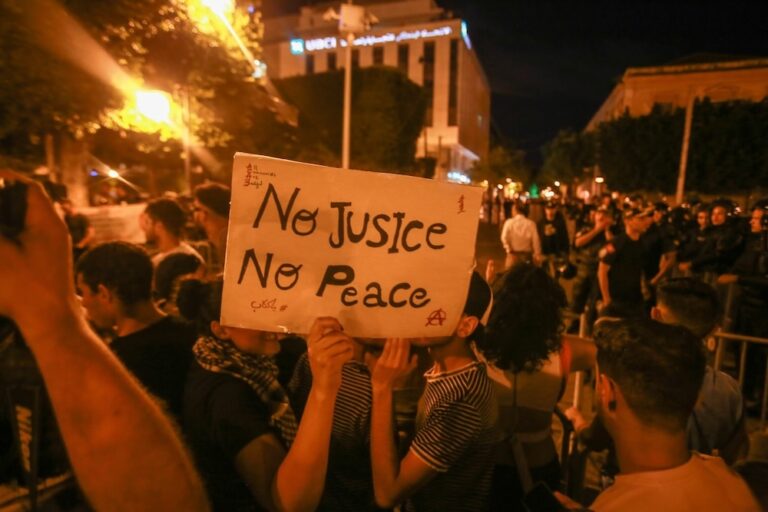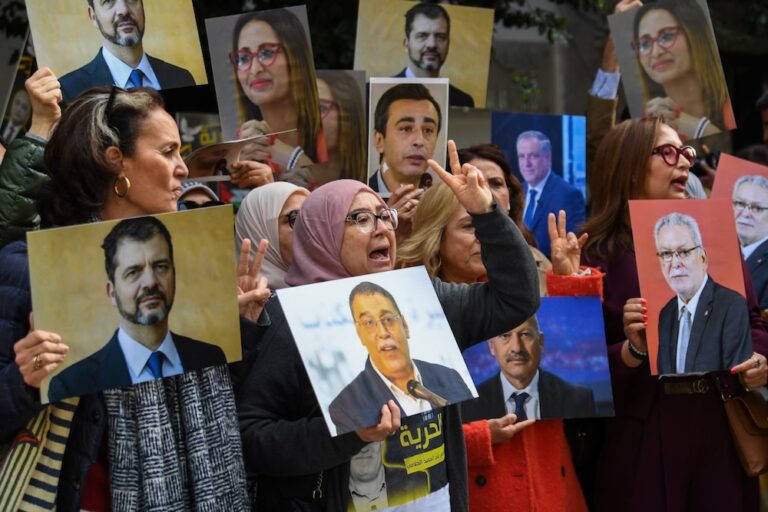(OLPEC/IFEX) – In the days following the World Summit on the Information Society (WSIS), Naziha Rejiba, editor-in-chief of “Kalima” and vice president of OLPEC, received warnings from a source close to the government, informing her that the authorities were displeased over certain articles which she had written that criticized the excesses of the those in […]
(OLPEC/IFEX) – In the days following the World Summit on the Information Society (WSIS), Naziha Rejiba, editor-in-chief of “Kalima” and vice president of OLPEC, received warnings from a source close to the government, informing her that the authorities were displeased over certain articles which she had written that criticized the excesses of the those in power and the mounting corruption in politically elite circles. She was informed that reprisals against her and her family were being prepared; this was reported in an OLPEC statement released on 5 December 2005.
Now those threats have been made clear. Her husband, Mohamed Taieb Jallali, a member of the National Council for Liberties in Tunisia (CNLT) who played a critical role in Parliament (1999-2004) and who recently resigned from the Unionist Democratic Party (UDU), along with 70 other members received a telephone threat that was confirmed over e-mail on 7 March 2006. He was informed that a self-featuring pornographic video would be released. The anonymous source that placed the call was careful to specify that he should not contact the police. Coincidentally, civil police officers took the prudent measure to stake out in front of his office on the same day. Jallali made a formal complaint to the state prosecutor’s office.
This is not the first time that these vile methods have been used by the secret services of the Ministry of the Interior against opponents and human rights defenders. It was believed that such methods were no longer in operation after the 1990s, during which time the police force had made great use of them to tarnish the reputation of opponents who did not conform to state orders. Unfortunately, OLPEC reports that this practice is still being carried out, along with defamation suits, which are regularly launched against newspapers.
OLPEC denounces these shameful methods employed by the Ministry of the Interior’s secret service and affirms its solidarity with Jallali and Naziha Rjiba. OLPEC calls for the courts to intervene to sanction those responsible for tainting the image of the country and its republican institutions. Furthermore, the organization holds these public institutions responsible for the physical and moral integrity of these two political opponents.


